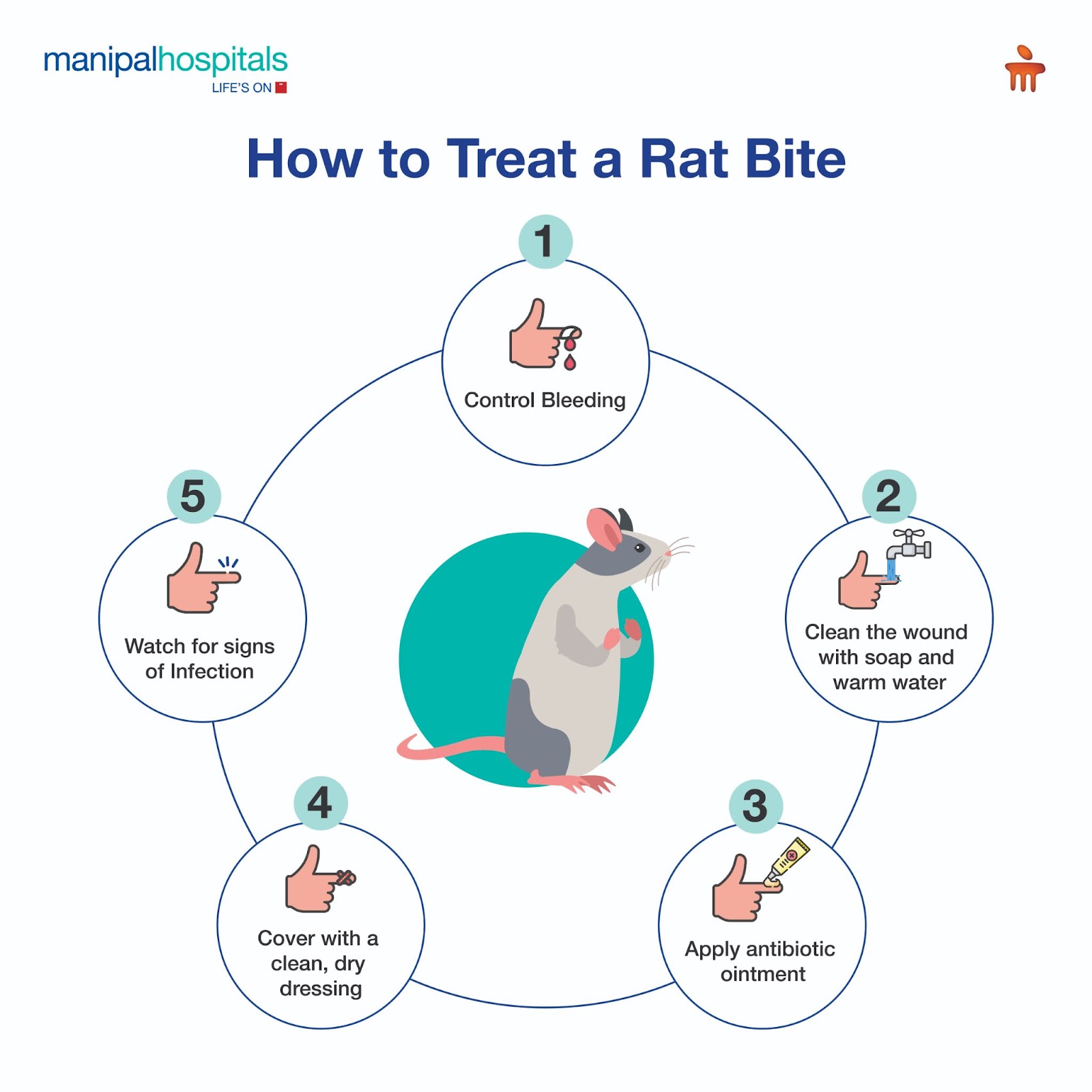
Rat Bite Fever (RBF) is a rare bacterial infection that can be transmitted from rats, mice, and other rodents to humans through bites, scratches, or contact with their urine or faeces. It is caused by two different types of bacteria, Streptobacillus moniliformis and Spirillum Minus, which are commonly found in the mouths and noses of rodents.
Some cases of infection are discovered after exposure to a rodent’s urine or other bodily secretions, which could come from the mouth, nose, or eyes. It can also be transferred through contaminated food or water, such as feces or urine. Household pets like dogs and cats, when exposed to rodents, can spread the disease, which may later infect humans.
To reduce the risk of illness following a rodent bite, the area should be thoroughly cleaned and dried. Untreated cases may result in a death rate of 10%. Tetracyclines or penicillin are commonly used to treat the infection.
If you’ve been exposed to rodents or have symptoms following a potential infection, it's important to seek medical attention immediately. You can connect with a doctor online instantly for advice on treatment and next steps
While RBF is relatively rare, it can be a serious and potentially life-threatening condition if not treated promptly. In this article, we will explore the symptoms, diagnosis, treatment, and prevention of Rat Bite Fever.
Symptoms of Rat-Bite Fever
The symptoms of rat-bite fever typically develop within 3-10 days of exposure to the bacteria.
- Fever: A high fever that may last for several days.
- Chills and Sweating: Patients may experience chills and sudden sweating.
- Skin Rashes: Patients may develop rashes on their hands and feet.
- Joint Pain: Joint pain is common in patients with rat-bite fever.
- Vomiting and Nausea: Patients may experience vomiting and nausea.
- Headache: A headache is a common symptom of rat-bite fever.
- Muscle Pain: Muscle pain is common in patients with rat-bite fever.
- Swollen Lymph Nodes: Lymph nodes may become swollen and tender.
Treatment of Rat-Bite Fever
Rat-bite fever can be treated with antibiotics, which are usually prescribed for 7-14 days. The antibiotics of choice for rat-bite fever are penicillin and doxycycline. Patients who are allergic to penicillin may be given erythromycin or tetracycline instead. In severe cases, hospitalisation may be required for intravenous antibiotic treatment under the supervision of infectious disease doctors in Bangalore.

Prevention of Rat-Bite Fever
The best way to prevent rat-bite fever is to avoid contact with rodents. Here are some tips to help prevent rat-bite fever:
- Keep your home and surrounding areas clean and free of clutter.
- Seal any gaps or holes that rodents could use to enter your home.
- Wear gloves when handling rodents or cleaning up their droppings.
- Keep pet food and water dishes clean and stored away from rodent access.
- Dispose of garbage in sealed containers.
- Keep outdoor areas clean and free of debris.
Rat-bite fever is a serious illness that can be contracted through contact with rodents. If you develop rat bite fever symptoms after exposure to rodents, seek medical attention immediately. With prompt rat bite treatment, most patients make a full recovery. Remember to take preventive measures to avoid contact with rodents to reduce the risk of contracting rat-bite fever.
A few FAQs on Rat Bite Fever
1. What is Rat Bite Fever?
Rat Bite Fever (RBF) is a rare bacterial infection that can be transmitted from rats, mice, and other rodents to humans through bites, scratches, or contact with their urine or faeces.
2: What are the symptoms of Rat Bite Fever?
The symptoms of Rat Bite Fever may include fever, chills, headache, muscle aches, joint pain, vomiting, and rash. In some cases, it can also lead to more severe complications, such as meningitis or sepsis.
3: How is Rat Bite Fever diagnosed?
Rat Bite Fever can be diagnosed through blood tests or by culturing the bacteria from a wound or blood sample.
4: What is the treatment for Rat Bite Fever?
Rat Bite Fever is treated with antibiotics, usually for 7-14 days. In severe cases, hospitalization may be required.
5: How can Rat Bite Fever be prevented?
Rat Bite Fever can be prevented by avoiding contact with rodents, keeping them out of living spaces, and properly cleaning and disinfecting areas where rodents have been present. If you are bitten or scratched by a rodent, seek medical attention immediately.





















 3 Min Read
3 Min Read










